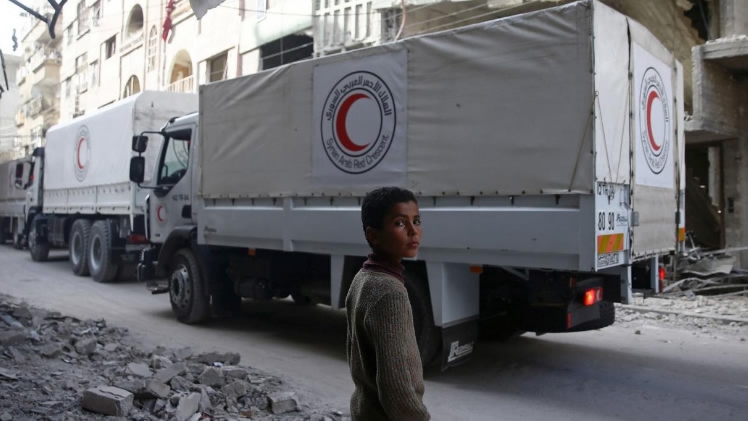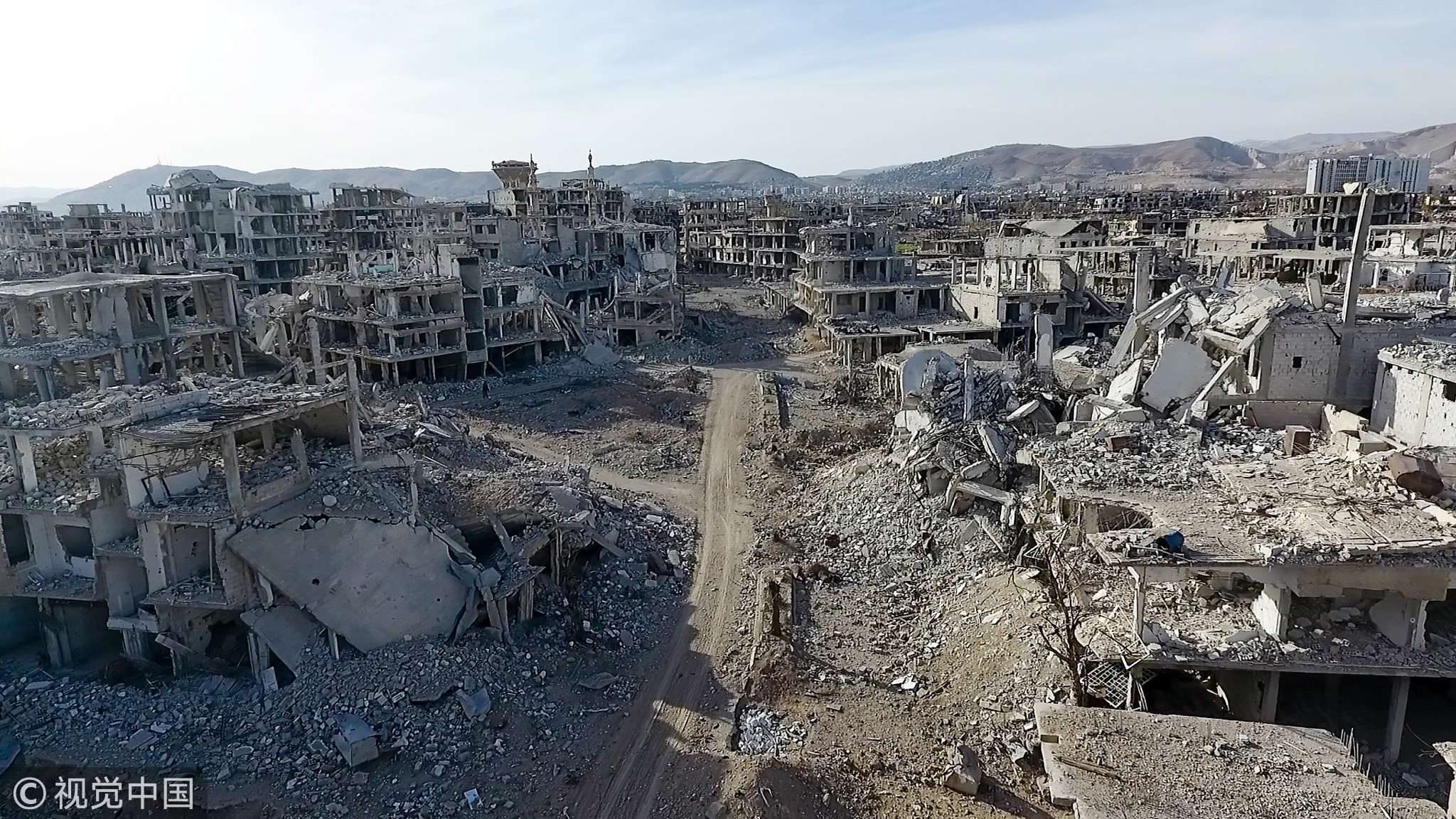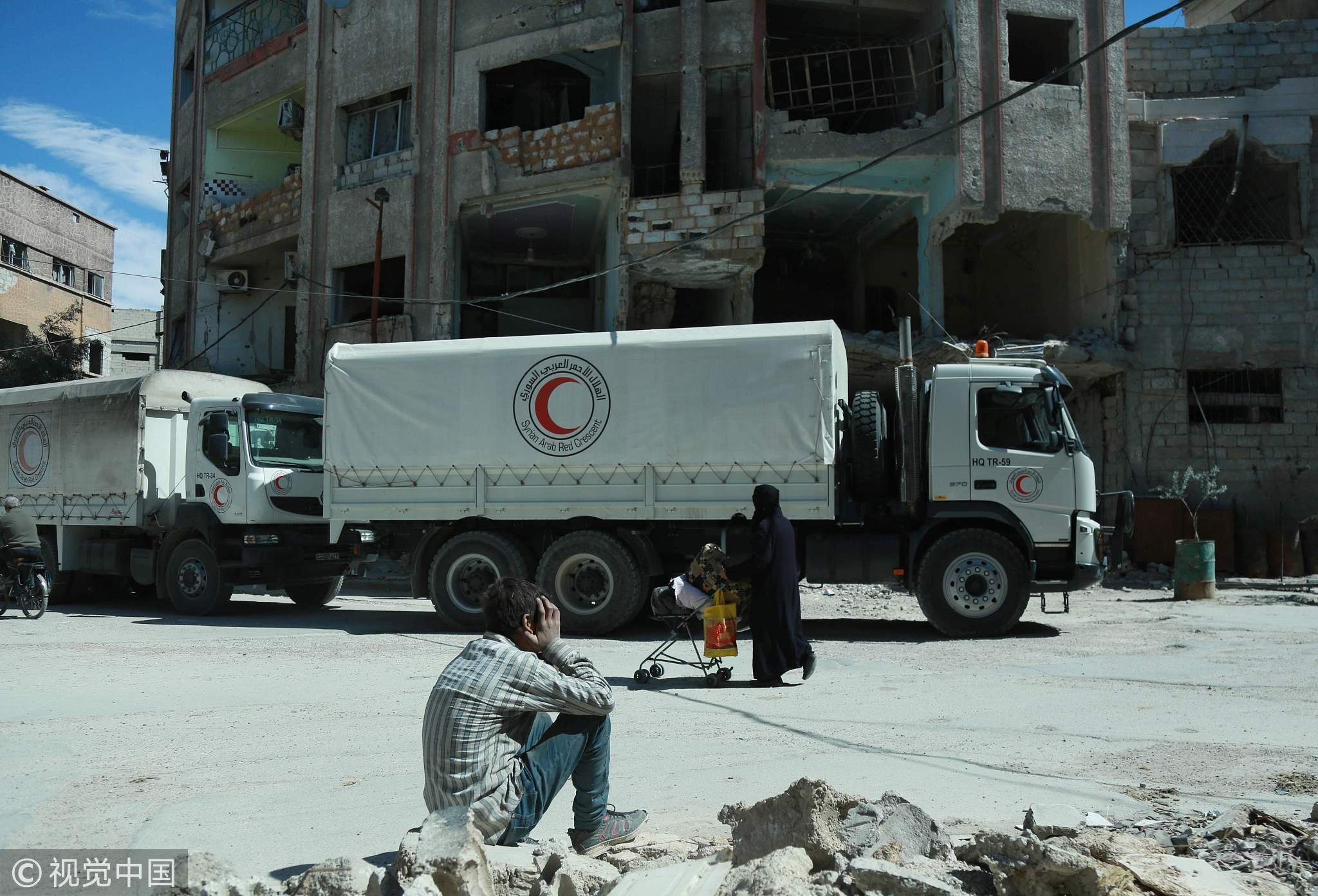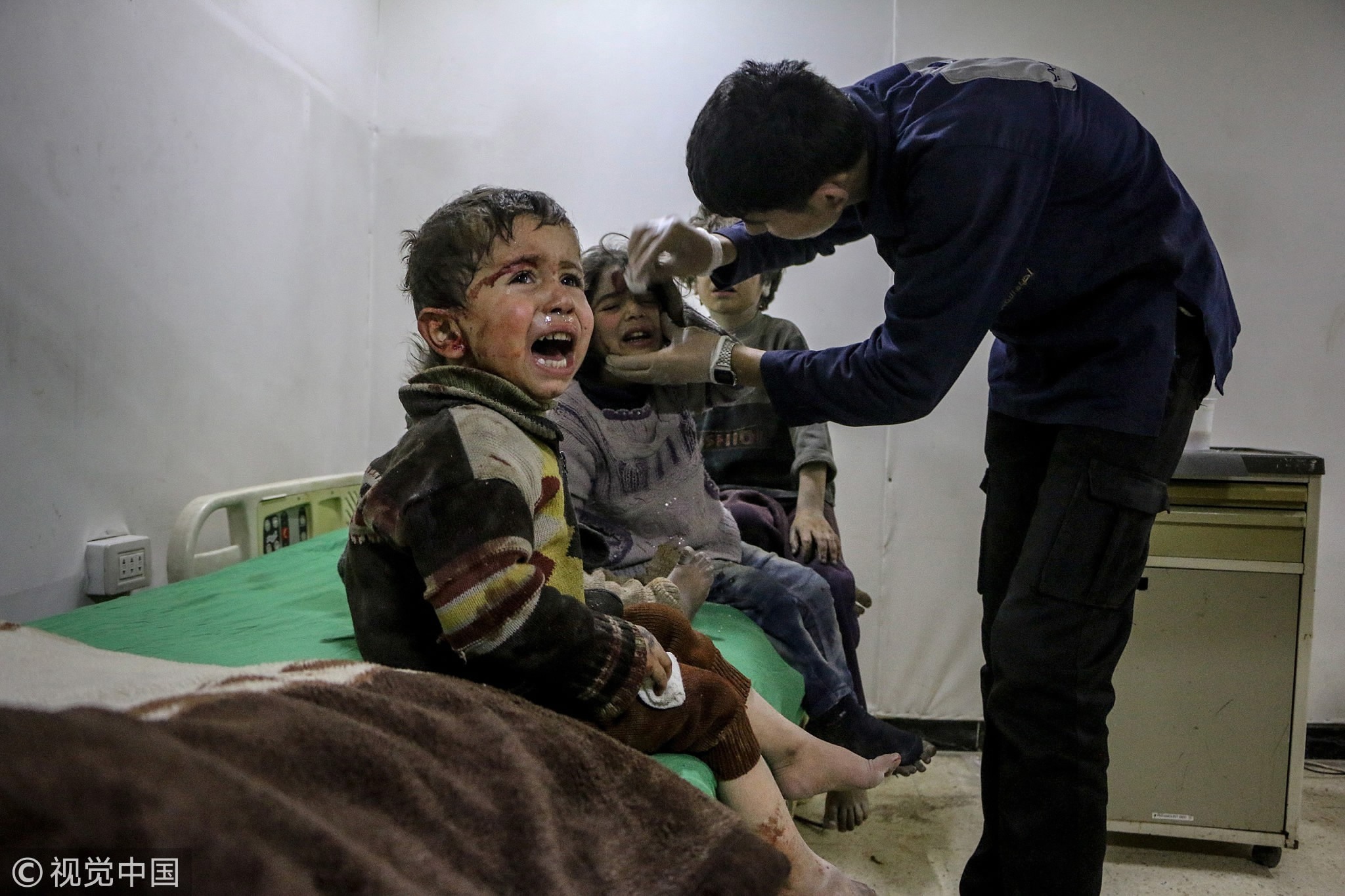
Politics
22:51, 09-Mar-2018
Bombardment of Syria's Ghouta endangers aid convoy: UN
CGTN

An emergency aid delivery crossed front lines into the besieged rebel enclave of eastern Ghouta on Friday but ran quickly into danger from renewed shelling, the top UN official in Syria said, amid a fierce government offensive.
The convoy was carrying food that could not be offloaded on Monday when fighting forced an earlier delivery to leave early, and the latest shelling came despite safety assurances, UN resident coordinator Ali al-Za’tari said.
In less than two weeks, the Syrian army has retaken nearly all the farmland in eastern Ghouta under cover of near ceaseless shelling and air strikes, leaving only a dense sprawl of towns – about half the territory – still under insurgent control.

Wreckage of structures in Arbin town, which has been under siege of Assad Regime, in Eastern Ghouta region, Damascus, Syria on March 09, 2018. /VCG Photo
Wreckage of structures in Arbin town, which has been under siege of Assad Regime, in Eastern Ghouta region, Damascus, Syria on March 09, 2018. /VCG Photo
E Ghouta residents are suffering
The onslaught has killed more than 1,000 people, the medical charity Medecins Sans Frontieres (MSF) said on Thursday. The war monitor, the Syrian Observatory for Human Rights, on Friday gave a death toll of 940 civilians in the campaign.
For eastern Ghouta’s civilians, trapped in underground shelters but deprived of food and water, there is a constant dilemma – whether to seek supplies or stay inside.
Damascus and Moscow have both said the assault is needed to stop rebel shelling of the nearby capital Damascus and end the rule of Islamist insurgents over civilians in eastern Ghouta.
But UN human rights chief Zeid Ra’ad al-Hussein has said, in comments criticized by Syria’s government, that the assault was “legally, and morally, unsustainable.”
The Observatory said there had been no air strikes on eastern Ghouta’s towns overnight for the first time since the government ground offensive began around 10 days ago.

Syrian Red Crescent trucks carry humanitarian aid in the Syrian town of Douma in the rebel-held enclave of Eastern Ghouta on March 9, 2018. /VCG Photo
Syrian Red Crescent trucks carry humanitarian aid in the Syrian town of Douma in the rebel-held enclave of Eastern Ghouta on March 9, 2018. /VCG Photo
But soon after the convoy of 13 trucks carrying food parcels crossed into eastern Ghouta, the Observatory and a witness in Douma said air strikes had resumed.
The food parcels were supposed to be delivered on Monday when another aid convoy entered Douma, but the fighting and bombardment then forced it to leave early without unloading all its supplies.
'One meal in several days'
“The situation is relatively good today. The bombing eased for a bit and is no longer intense,” said Bilal Abu Salah, a resident of Douma, before the resumption of air strikes. But he added that shortages remain acute, causing great hardship.
“Entire families eat one meal in several days,” he said.
UN aid agencies have pleaded with the Syrian government and its ally Russia to halt the campaign and allow access for humanitarian deliveries.

Wounded children receive medical treatment at a field hospital in Damascus, Syria on March 08, 2018. /VCG Photo
Wounded children receive medical treatment at a field hospital in Damascus, Syria on March 08, 2018. /VCG Photo
The United Nations estimates that 400,000 people live in rebel-held areas of eastern Ghouta. The government and Russia’s military have opened what they say are safe routes out of the enclave, but no inhabitants are known to have left yet.
Damascus and Moscow accuse the insurgents of shooting at civilians to prevent them fleeing the fighting into government areas. Rebels deny this and say the area’s inhabitants have not crossed into government territory because they fear persecution.
The terror of the bombardment and the increasingly unbearable living conditions may push people to brave the fighting and flee, according to one resident of Douma.
Medical facilities have been hit in air strikes, adding to shortages of equipment that have made it harder to treat the wounded. On Friday the World Health Organization said attacks on medical facilities in Syria were on the rise.
State television reported on Friday morning that the army had control over the village of Beit Sawa, where rebel officials on Thursday said insurgents had recaptured some positions. Government forces will now advance along other fronts, it said.
Source(s): Reuters

SITEMAP
Copyright © 2018 CGTN. Beijing ICP prepared NO.16065310-3
Copyright © 2018 CGTN. Beijing ICP prepared NO.16065310-3